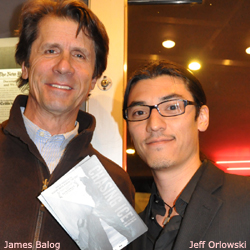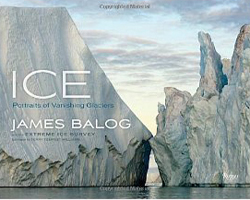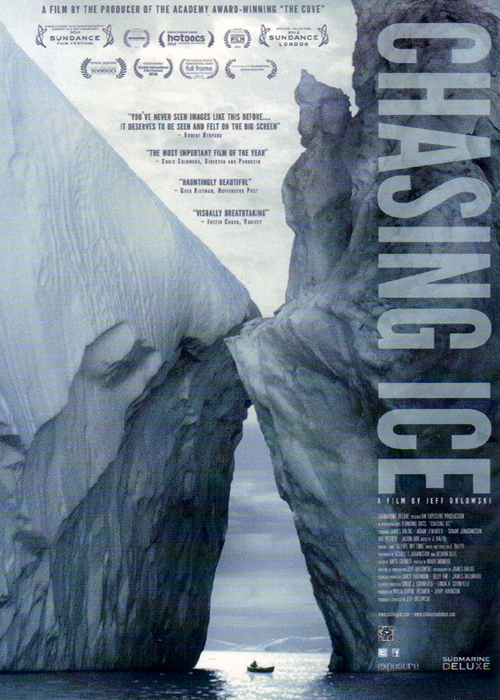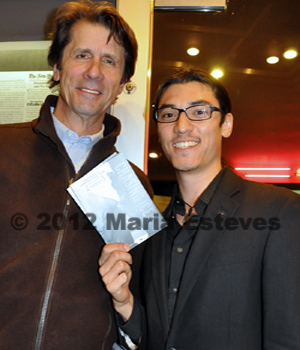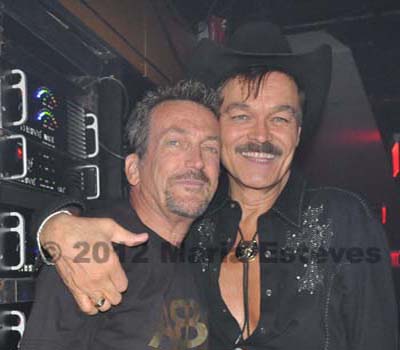|
|
||
|
Pro Tools
FILMFESTIVALS | 24/7 world wide coverageWelcome ! Enjoy the best of both worlds: Film & Festival News, exploring the best of the film festivals community. Launched in 1995, relentlessly connecting films to festivals, documenting and promoting festivals worldwide. We are currently working actively to upgrade this platform, sorry for the inconvenience. For collaboration, editorial contributions, or publicity, please send us an email here. User login |
Aviva PressAviva Press, the e-press service in entertainment news, fashion, film festivals, music festivals, festival awards, television news, technology news, and celebrity photos.  An Interview with Israel Film Festival Founder Meir FenigsteinBy Maria Esteves The 20th Israel Film Festival (IFF) held at the Clearview Cinema in New York, October 14-28, 2004, successfully celebrated 20 years presenting the best films and filmmakers from Israel. Attendees in record numbers gathered daily to purchase IFF tickets. Israel Film Festival Founder/Executive Director Meir Fenigstein was interviewed in New York on Sunday, October 31, 2004. Q: What inspired you to move from music to film? MF: I was born in Tel Aviv, December 13, 1950 two years after the creation of the state of Israel. My parents were both Holocaust survivors. I started to have a strong interest in music in the first grade. At 15, my father bought me a set of drums. At 18, while I was in the Israeli Army, I joined the "Nachal Entertainment Group" (Army Entertainment Group). During 1969-1972, the Army Entertainment Group performed for soldiers all over the country. In 1973, after serving the army, we created a rock band called "Kaveeret" in America they called us ""Poogy"". It was seven guys, five from the Army Entertainment Group. We became an instant hit in Israel and we performed for the soldiers for six months during the Yom Kippur War. The music style was Israeli and American because the main writer and singer was raised in New York. We were influenced by the Beatles, Johnny Winter and Stevie Wonder. We made three successful albums. In 1976, after the USA tour we disbanded the "Poogy" band. In 1977-1978, my film and theatre experience began. I played the army drummer in "Nachal Group" (The Troop) directed by Avi Nesher. In "Aunt Clara" directed by Abraham Hefner, I played the lead actor. At the same time, I continued as a musician to play the drums and wrote songs. In 1979, I attended the Berkley College of Music in Boston, MA, and studied music composition. When I finished the first year and went back to Israel I realized why don't I start something in America? What about a film festival? People in Israel and in Boston, MA, inspired me. In 1980, I did the First Israeli Film Festival in Boston, MA, for four days with six films. Then, I decided to do the festival with ten Israeli films in New York. The interest that I had is to be connected to Israel and the art. To do something that has a vision. My three goals was vision, art and be connected to Israel. The first year in New York was very difficult. The second year we became a non-profit organization called IsraFest Foundation (IFF). During 1983-1989, many American film productions were shot in Israel for example "Rambo III." In 1990, during the post gulf war, IFF gave a dinner at the Waldorf Astoria to salute US and Israeli co- production. To answer your question, “Why make the change from music to film?” As a musician and actor I wanted to do something new and successful. I believed in my vision and dream to bring the Israeli film industry to America. In 1984, “Poogy” had a concert reunion in Israel and over 500,000 people attended. In December 1985, “Poogy” performed a sold out concert at the Beacon Theatre in New York. At end of the performance, I decided to throw my drumsticks to the audience. For four years, I played the drums in the weekends and during the week I did the film festival. I had to make a decision to be in the music or film industry. I could not do both anymore. I needed this concert in New York to say goodbye. However, if somebody wants to call me for a gig I’m always willing to play. Q: How has the festival changed over the years? MF: First we started screening feature films, then TV, documentaries and student shorts. Since we reached the 20th anniversary, now is the time to rethink how to continue the festival for the next 20 years. Q: What changes has been made to this year's festival? MF: Every five years, the festival changes. I alternated between New York and Los Angeles. The 10th anniversary, I sustained for five years in New York and Los Angeles. The four cities I'm doing from 15th - 20th anniversary are New York, Los Angeles, Chicago, and Miami. Q: What will be different next year? MF: To build financial stability. To sustain the Clearview Ziegfeld Theatre in New York as the opening night like we are doing in the Academy of Motion Pictures in Los Angeles. The dream is one day, to see an Israeli film open to the public at the Clearview Ziegfeld. One day, in a meeting with Chairman of Universal Studios, Lou Wasserman, said, "Mr. Fenigstein, if you can reach the sixteen years old in the mid west then you achieved something." I said, "Mr. Wasserman, it would probably take me 50 years to achieve this goal." How many 16-year-olds will go and see an Israeli film in a movie theatre not one or two but a sold out screening in Omaha? That's a goal! Q: That was my next question, what are the goals of the festival? MF: Not Omaha! I would like to see a distributor using the festival as a kick off for a film to open to the public at least in the four cities where the festival is playing. We had a few distributors coming to see the film "Turn Left At The End Of The World," directed by Avi Nesher and "The Syrian Bride,"directed by Eran Riklis and there was a lot of interest in distribution. Q: More interest from distributors? MF: Currently, Goldwyn, Magnolia, Newmarket and Wellspring are distributing Israeli films. It's not yet in the millions but I think it will soon come. My vision ten years ago: by 2005 at least to have an academy award nominee, if not 2005, then the following year. Q: Should the festival reflect a theme? MF: The festival basically reflects the Israeli society. Q: How has the audience changed? MF: We did a survey in New York and currently 40 to 50% are Americans coming to see the festival and 50% are Israelis. Q: What films have had the best reactions over the years? MF: Drama feature films that has a humanistic touch. At first, we screened Arabs and Israeli relationship films and the audience did not have an interest in it. Q: How has the interest in Israeli films changed? MF: Four years ago, the Knesset (Israeli Government) organized a committee called the Israeli Film Committee. They are distributing approximately 16 million shekels ($15,000,000) million American dollars to cinema techs and film festivals. In 2003 and 2004, one million people went to go see Israeli films in Israel compared to 36 thousand people in 1998. Q: How have the filmmakers been affected by the festival over the years? MF: The idea is for filmmakers to compete with the audience choice awards, have Q&A after the screening and to find distributors for their film. IFF is inspiring filmmakers to continue to make films.
Q: Ever think of doing a best of the Israeli Film Festival? MF: We did the best of the best in Los Angeles because we had two venues. We showed 10 films. In New York, we do not have an extra venue. We have only two weeks and we want to show the new films. However, NYIFF sell the DVD movies of the best. Q: Why the awards and how are they decided? MF: We want to connect to the American film industry. We are always looking to award people within the film industry. For example, SHOWTIME Chairman Matt Blank is somebody we want to be connected. We want Israeli film to be screened in SHOWTIME. A couple of years ago, we honored HBO Chairman Michael Fuchs. This year and five years ago, we honored Sony Picture Classics, Co-Presidents, Michael Barker and Tom Bernard. This year, Sony Picture Classics distributed an Israeli Film. Can you say is it because we honored them and they felt obligated to buy an Israeli film? No, they saw the right film and felt it would be good for them. Q: What upcoming projects are you involved in? MF: To establish the festival for the next 20 years. Hopefully, to co-produce an Israeli film in America. Q: How is the festival different in different cities? MF: The two main festivals are in New York and Los Angeles. The other two cities Chicago and Miami are smaller festivals. On November 3-14, 2004, IFF opens in Chicago. On December 3-9, 2004, IFF opens in Miami Beach. Q: Why the changes of venues and dates? MF: We change venues and dates for different kind of reasons. It’s impossible to do four festivals one after the other. Right now we are doing three and it’s very difficult. We moved New York from June to October because it was difficult to do NYIFF after Los Angeles. Q: What can you tell us about your personal life? MF: I’m married. I have a newborn son named Simon and a 25-year-old daughter named Rachel, a Harvard graduate currently studying medicine. Thank you, Meir. 25.10.2008 | Aviva Press's blog Cat. : Abraham Hefner America army Army Entertainment Group Astoria Aunt Clara Avi Nesher Avi Nesher Boston Chicago Cinema of Israel Entertainment Entertainment Eran Riklis Harvard HBO Israel Israel Israel Film Festival Israeli army Israeli government Israeli Jews Johnny Winter Kaveret Knesset Los Angeles Lou Wasserman Matt Blank Meir Fenigstein Miami Michael Barker Michael Fuchs Nachal Entertainment Group Nachal Group Nationality New York Omaha Rambo III Showtime Sony Stevie Wonder Technology Technology TEL AVIV The 20th Israel Film Festival the First Israeli Film Festival the Israeli Film Festival The Syrian Bride Tom Bernard Turn Left At The End Of The World Universal Studios Waldorf FESTIVALS
|
LinksThe Bulletin Board > The Bulletin Board Blog Following News Interview with EFM (Berlin) Director
Interview with IFTA Chairman (AFM)
Interview with Cannes Marche du Film Director
Filmfestivals.com dailies live coverage from > Live from India
Useful links for the indies: > Big files transfer
+ SUBSCRIBE to the weekly Newsletter DealsUser imagesAbout Aviva PressThe EditorUser contributions |


















